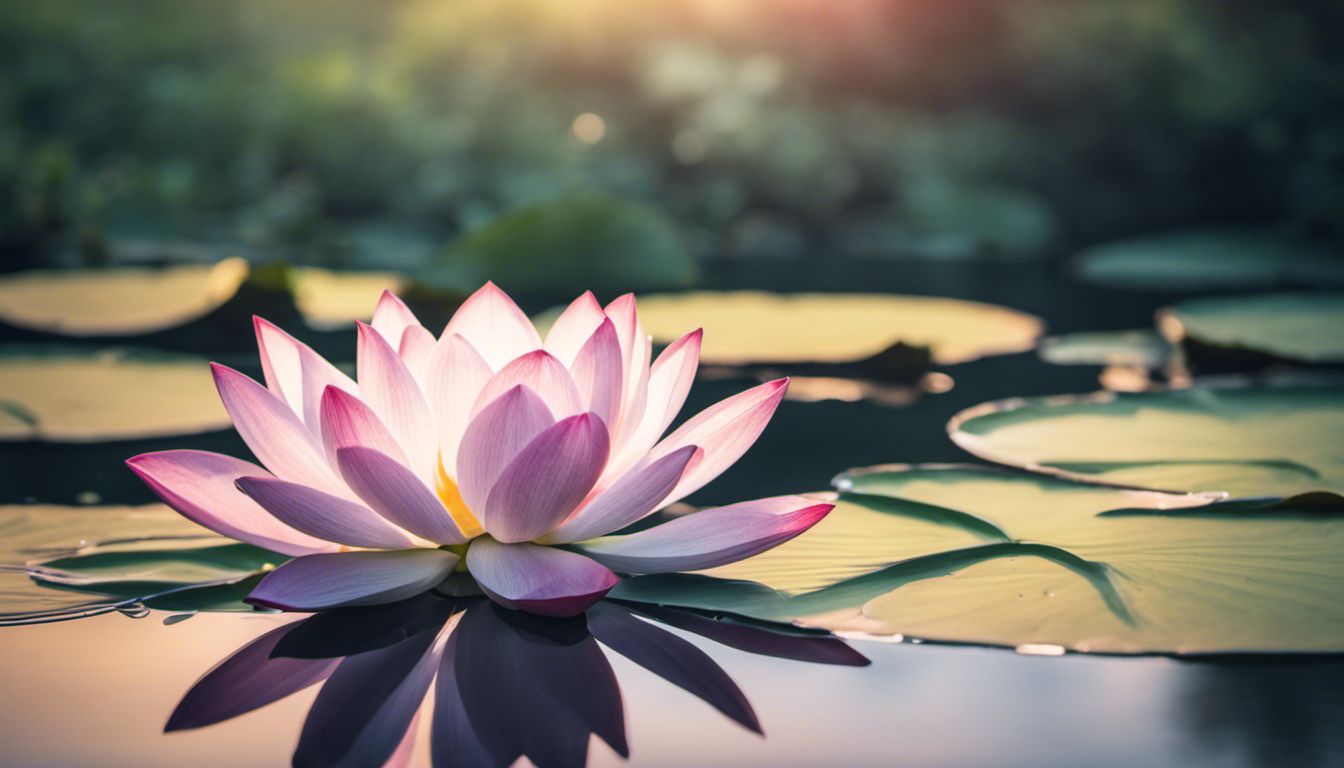Mindfulness Vs Vipassana: Understanding The Key Differences

Are you confused by the difference between mindfulness and vipassana? You’re not alone. Both are foundational meditation practices used in Buddhist tradition, yet they differ significantly.
This blog post will clarify these differences and help you understand each practice’s unique purpose. Ready to gain some insight? Let’s dive in!
Key Takeaways
- Mindfulness and Vipassana are both meditation practices used in Buddhist tradition, but they have significant differences.
- Mindfulness focuses on being present in the moment, while Vipassana goes beyond mindfulness to gain insight into the true nature of reality.
- Both practices offer unique benefits: mindfulness helps reduce stress and anxiety, while Vipassana deepens self-understanding and leads to profound insights.
- Choosing the right practice depends on your goals and preferences, so it’s important to understand the differences between mindfulness and Vipassana.
What is Mindfulness?

Mindfulness can be defined as a foundational practice in all forms of meditation.
Operational definition
Mindfulness has an operational definition. It is a term that some people use in their daily life. This term came from the word sati, found in Hindu and Buddhist ways of life. Zen, Vipassanā, and Tibetan methods of meditation also use this same idea.
There was a study called “Effects of Mindfulness on Psychological Health: A Review“. This study shared the thought that one can measure mindfulness during insight meditation or Vipassana.
But there is still a question to answer – Can mindfulness and rest give us equal effects when we talk about how we deal with feelings?.
Foundational to all forms of meditation
Mindfulness is at the heart of all types of meditation. It’s like a seed that grows into a big tree. We use mindfulness in every kind of meditation we do. Mindfulness helps us to pay full attention to what is happening right now.
It makes us aware of our body and mind.
The Buddha taught that mindfulness leads to calmness, deep concentration, and insight into reality. He used it as part of his way to find freedom from stress and anxiety. In Buddhist teachings, this is a key tool for understanding our minds better.
So, if you want to meditate, start with mindfulness!
What is Vipassana?

Vipassana is a form of meditation that is closely related to mindfulness, but it also has its own distinct techniques and practices.
Relationship to mindfulness
Vipassana has a strong link to mindfulness. It’s like growing a special type of mindfulness. This practice helps you notice how things really are in the world. It makes you see and know your own thoughts, feelings, and actions.
You use Vipassana to watch real life as it happens. You don’t react or judge what you see with this kind of meditation. This method puts mindfulness into action right now, not next week or last night but at this very moment.
Importance of practicing both
Practicing both Vipassana and mindfulness meditation is important because they offer complementary benefits. Vipassana meditation helps us become more aware of our internal and external experiences, allowing us to observe sensations without reacting to them.
On the other hand, mindfulness meditation helps reduce stress and anxiety by bringing our attention to the present moment. By practicing both, we can cultivate a deep sense of relaxation, inner peace, and self-awareness.
Each practice offers unique advantages that can enhance our overall well-being over time.
Understanding the Key Differences
The confusion between mindfulness and Vipassana is often due to the role of meditation in this discussion.
Confusion between the two terms
There is often confusion between the terms mindfulness and Vipassana meditation. Many people think they are the same thing, but they actually have some key differences. Mindfulness meditation is a practice of being fully present and aware in the present moment, without judgment.
It involves paying attention to your thoughts, feelings, and sensations as they arise. On the other hand, Vipassana meditation goes beyond just mindfulness and focuses on gaining insight into the true nature of reality.
It involves observing bodily sensations with equanimity to develop wisdom and liberation from suffering. So while both practices involve meditation, they have different techniques and purposes.
Role of meditation in this discussion
Meditation plays a crucial role in understanding the key differences between mindfulness and Vipassana. Both practices involve meditation techniques that cultivate awareness and attention, but they have distinct focuses and purposes.
By engaging in regular meditation, individuals can develop their ability to observe their thoughts, emotions, sensations, and experiences more objectively. This heightened self-awareness enables them to better understand the unique qualities of mindfulness and Vipassana meditation, allowing for a clearer grasp of how these practices differ from one another.
Additionally, through sustained practice, meditation helps individuals experience the benefits of relaxation, increased mindfulness, and inner peace firsthand.
Mindfulness Vs Vipassana: A Comparison
In this section, we will compare the techniques and practices of mindfulness and Vipassana meditation, as well as their focus on mindfulness versus insight.
Techniques and practices
Mindfulness and Vipassana have different techniques and practices. Mindfulness meditation involves focusing on the present moment, paying attention to sensations in the body, and observing thoughts without judgment.
It can be practiced throughout daily activities like showering or eating. Vipassana meditation, on the other hand, focuses on developing insight into the true nature of reality. Meditators observe physical sensations in their bodies and cultivate awareness of impermanence and non-self.
Both techniques involve bringing full attention to one’s experience but with different goals: mindfulness aims for greater awareness while Vipassana seeks direct insight into reality.
Focus on mindfulness vs. focus on insight
Mindfulness meditation and insight meditation, also known as vipassana, have different focuses. Mindfulness meditation centers on paying attention to the present moment, bringing awareness to sensations, thoughts, and emotions without judgment.
It promotes relaxation and inner peace. On the other hand, insight meditation focuses on gaining a deep understanding of the true nature of reality. By investigating our experiences with curiosity and discernment, we develop insights into impermanence, suffering, and non-self.
Both practices are important for personal growth and can complement each other in cultivating mindfulness and wisdom.
Benefits and purposes
Both mindfulness and Vipassana meditation have their own unique benefits and purposes. Mindfulness, often used as a stress reduction technique, helps improve focus, attention, and emotional regulation.
It promotes relaxation, mindfulness, and a sense of inner peace. On the other hand, Vipassana meditation goes deeper into self-understanding and gaining insight into the nature of reality.
It can lead to a profound understanding of oneself and existence as a whole. Both practices offer different approaches to cultivating awareness and have their own positive effects on mental well-being.
Why it’s Important to Understand the Differences
Understanding the differences between mindfulness and Vipassana is crucial for choosing the right practice that aligns with your goals and avoiding misconceptions or confusion.
Choosing the right practice for your goals
Choosing the right practice for your goals is important. Here are some factors to consider:
- Understand your objectives: Clarify what you want to achieve through meditation. Are you looking for stress reduction, improving focus, or gaining insight into yourself?
- Research different practices: Learn about the various types of meditation available, such as mindfulness and Vipassana. Understand how they differ in techniques and benefits.
- Consider your preferences: Reflect on your personality and lifestyle. Do you prefer a more structured practice like Vipassana, or do you enjoy the flexibility and accessibility of mindfulness?
- Seek guidance if needed: If you’re unsure which practice suits you best, consult experienced meditation teachers or attend meditation classes to get a better idea.
- Try it out: Experiment with different practices to see which one resonates with you the most. Give each practice enough time to evaluate its effectiveness.
Avoiding misconceptions and confusion
To avoid misconceptions and confusion between mindfulness and Vipassana meditation, it’s important to understand their key differences. Mindfulness meditation focuses on being present in the moment and cultivating awareness of sensations, thoughts, and emotions.
On the other hand, Vipassana meditation goes beyond this by delving into insight and understanding the nature of reality. It is a part of the broader Buddhist system and not a standalone practice.
By recognizing these distinctions and gaining clarity about each practice, we can choose the right approach based on our goals and prevent misunderstandings about their purposes.
Conclusion
In conclusion, understanding the key differences between mindfulness and Vipassana is essential for choosing the right practice that aligns with your goals. While both techniques involve cultivating mindfulness, Vipassana focuses on developing insight into reality through observing internal experiences.
By clarifying these distinctions, we can avoid misconceptions and confusion, allowing us to make informed decisions about our meditation journey. So whether you choose mindfulness or Vipassana, both offer valuable benefits such as stress reduction and increased self-awareness.
FAQs
1. What are mindfulness and Vipassana?
Mindfulness means to pay attention to whatever is happening right now, like sounds or feelings. Vipassana is a Buddhist meditation technique that helps you see things as they really are.
2. How can I practice mindfulness and Vipassana?
To be better at mindfulness, you can use meditation methods like focusing on your breath or the sensations in your body. You can also take a course for vipassana meditation where you learn more skills.
3. Are there types of meditation other than Mindfulness and Vipassana?
Yes, Buddhism includes other systems of meditation such as samatha, which uses an object of concentration to create state of deep calm.
4. Is there any connection between Samatha and Vipassana in Buddhist texts?
Yes! In the framework of Buddhism from old Pali texts called sutta – Samatha leads to calm while vipassana is used for clear seeing or knowing things directly.
5.What benefits do I get when doing mindfulness and vipassanna meditations?
Both practices help you become aware of what’s around you but differ in their goals: whereas vipasanna with its awareness focus might show new truths about life; while pure mindfulnes cultivates peace by letting us simply observe whether something feels pleasant or unpleasant without judging it!
6.Are these forms only found within ancient techniques or can they fit into modern life?
Mindfulness can be practiced anywhere even when taking a shower! The teachings Thich Nhat Hanh offers along with MBSR (mind-body stress reduction) are among many modern western ways that people have made use from them.
MindOwl Founder – My own struggles in life have led me to this path of understanding the human condition. I graduated with a bachelor’s degree in philosophy before completing a master’s degree in psychology at Regent’s University London. I then completed a postgraduate diploma in philosophical counselling before being trained in ACT (Acceptance and commitment therapy).
I’ve spent the last eight years studying the encounter of meditative practices with modern psychology.

